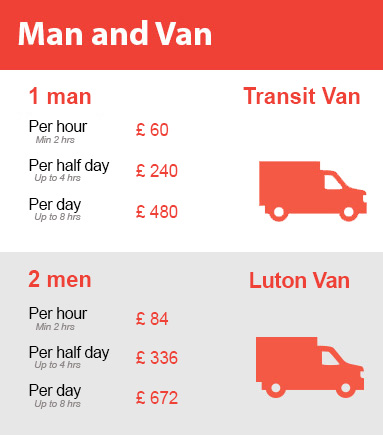Proven Techniques for Moving Your Bed and Mattress Safely
Posted on 23/06/2025
Proven Techniques for Moving Your Bed and Mattress Safely
Moving house can be a challenging experience, especially when it comes to shifting large and bulky items such as your bed and mattress. Whether you are relocating across town or updating your bedroom furniture, knowing the right techniques is crucial to preserving your investment and avoiding injury. In this comprehensive guide, we'll share the top proven techniques for moving your bed and mattress safely. From preparation and packing, to transportation and setup, discover all you need to ensure a smooth transition for your most essential bedroom pieces.


Planning and Preparation for Safe Bed and Mattress Moving
Preparation is key when it comes to moving heavy and delicate items like your bed and mattress. By planning ahead, you can avoid common mistakes and ensure a seamless transition. Here's how you should start:
- Measure Doorways and Hallways: Before you begin, measure the dimensions of your bed, mattress, and all entryways. This prevents last-minute surprises and possible damage.
- Create a Clear Pathway: Clear obstacles from the route you'll use to move your bed and mattress. This reduces the risk of accidents or tripping.
- Enlist Help: Beds and mattresses are large and unwieldy, so it's vital to ask friends or movers for assistance.
- Check the Weather: If you're moving during inclement weather, plan with extra care to protect your mattress from moisture and dirt.
Gathering the Right Tools and Supplies
For a truly safe move, you need the proper tools and packing materials. The following items will make moving your bed and mattress safer and more efficient:
- Furniture Dolly or Hand Truck: Essential for heavy lifting and moving over longer distances.
- Moving Straps: These help distribute weight more evenly and provide grip.
- Mattress Bag or Cover: Protects your mattress from dirt, moisture, and tears.
- Furniture Blankets: Prevent scratches and dings on bed frames and headboards.
- Tool Kit: Screwdriver, wrench, or Allen keys for disassembling bed components.
- Plastic Bags and Labels: For storing screws, bolts, and small hardware; label them to streamline reassembly.
- Stretch Wrap or Tape: For binding bed parts together and securing loose pieces.
Quick Supply Checklist
- Mattress bag or plastic wrap
- Moving blankets
- Hand tools for disassembly
- Furniture dolly
- Moving straps
- Markers and labels
- Plastic bags for hardware
Disassembling Your Bed Frame Safely
Most bed frames and bases need to be disassembled before a move. Not only does this prevent damage, but it also makes handling and transport much easier. Follow these steps:
- Remove Bedding: Strip the bed of sheets, pillows, mattress toppers, and comforters. Launder and pack them separately.
- Take Photos: Before disassembly, take photos of your bed frame. This makes reassembly much easier.
- Dismantle Headboards and Footboards: Use the right tool to carefully unscrew and separate these elements.
- Disassemble Slats or Base: Remove support slats or platforms carefully to avoid cracking wood or bending metal.
- Organize Small Parts: Place all bolts, nuts, and screws into labeled bags and tape them to the corresponding frame piece.
- Bind Bed Parts: Secure long bed rails or slats with stretch wrap or tape so nothing shifts during transit.
Tip: If you have a platform or adjustable bed, check the manufacturer's guide for specific moving instructions. Some beds may require special treatment to avoid voiding warranties.
Packing and Protecting Your Mattress: Techniques for Safe Mattress Moving
Your mattress is one of the most valuable and delicate components of your bed. Damage from improper handling can shorten its lifespan. Here are proven mattress moving techniques:
- Invest in a High-Quality Mattress Bag: Mattress bags are designed to keep out dirt, moisture, and pests. Make sure the bag is the right size for your mattress (twin, full, queen, or king).
- Cover Completely: If a mattress bag isn't available, use thick plastic sheeting and secure with strong tape.
- Protect Corners: Add extra padding to the corners, which are most vulnerable to tears during moves.
- Keep Upright if Possible: Standing your mattress on its side protects internal springs and prevents sagging.
- Don't Fold or Bend: Never fold a standard spring mattress - this can permanently damage the coils. Memory foam or latex mattresses are more flexible but still should be rolled, not sharply folded.
Important: Never move a dirty or wet mattress. If your mattress is already soiled, clean and dry it thoroughly before packing.
Lifting and Moving Techniques for Beds and Mattresses
Improper lifting is one of the biggest risks associated with moving beds and mattresses. To avoid back injuries and accidental damage, follow these safe moving techniques:
- Lift with Your Legs, Not Your Back: Squat, grasp the item firmly, and push up with your legs to avoid strain.
- Teamwork: Always move heavy pieces with another person. Communicate clearly and coordinate who will move which part.
- Use Moving Straps: Straps allow you to distribute the load and grip awkward mattress sizes more securely.
- Slide, Don't Drag: Whenever possible, hover the mattress and frame over the floor on a blanket or dolly, rather than dragging and risking snags or scratches.
- Maneuver Carefully Through Tight Spaces: Pivot and angle the mattress or frame, rather than forcing it, to avoid damaging walls or getting stuck.
Pro Tip: If you encounter stairs, keep the mattress upright and move step by step, making sure to communicate each motion with your partner.
Loading Your Bed and Mattress into a Moving Vehicle
Once your bed and mattress are disassembled and protected, careful loading is essential for safe transit.
- Start with the Largest Items: Begin loading with the bed base or headboard to maximize space.
- Keep Mattress Upright: Place the mattress on its side against the wall inside the truck or van, ensuring it won't shift during transit.
- Cushion Surfaces: Use moving blankets to separate the mattress from sharp objects or furniture edges.
- Tie Down Securely: Use ropes or tie-down straps to secure everything in place. This prevents sliding and bouncing during the drive.
- Avoid Stacking Heavy Items on the Mattress: Heavy boxes can deform mattresses or cause permanent dents.
Transporting and Securing Your Mattress and Bed
For longer or more complex moves, especially interstate relocation, it's essential to ensure the safe transport of your mattress and bed frame:
- Check for Stability: Before leaving, double-check all items for stability and ensure nothing is likely to fall or tip over.
- Drive Carefully: Sudden stops or sharp turns can jostle your furniture. Drive slowly, especially over speed bumps and rough roads.
- Rain or Snow: If moving an open vehicle like a pickup, ensure your mattress is completely covered and secure against wind and weather.
- Professional Movers: For cross-country moves or luxury mattresses, consider hiring experienced furniture movers who specialize in safe bed and mattress transport.
Unloading and Reassembling Your Bed and Mattress
Arriving at your new home is exciting, but don't rush the unloading and setup process. The following steps will help reassemble your bed safely:
- Clear the Pathway: Before unloading, make sure the access to your new bedroom is unobstructed.
- Unload Mattress First: With help, gently carry the mattress to the bedroom. Stand it upright until you're ready to place it.
- Move Frame Components: Carefully move headboard, footboard, rails, and slats into place.
- Reassemble in Reverse: Use your earlier photos and labeled hardware to reconstruct your bed frame step by step. Do not overtighten screws -- ensure stability without damaging the frame.
- Inspect Mattress: Before laying it down, double-check for any signs of damage or moisture. Air out the mattress briefly if needed.
- Place Mattress: Once the bed frame is ready, gently place the mattress on top and complete setup with fresh bedding.
Tip: If you detect any mold or moisture, allow the mattress to air dry in a well-ventilated area before use.
Additional Tips for Safe Mattress and Bed Moving
- Label All Parts: Mark bed frame components and hardware bags with clear labels to make reassembly quick and stress-free.
- Protect Upholstered Headboards: Cover upholstered elements with extra layers of plastic or fabric wrap to prevent stains and tears.
- Use Professional Movers for Large Beds: King beds or adjustable bases often require specialized moving services for safety and warranty preservation.
- Plan for Tight Spaces: In apartments or old homes with narrow stairs and halls, sometimes lifting a mattress through a window is necessary. Plan for all contingencies.
- Don't Forget the Box Spring: Box springs can also be heavy and delicate. Wrap and move them using the same techniques as for mattresses.
- Check Your Mattress Warranty: Some manufacturers require you to transport your mattress standing upright to maintain warranty coverage.
Conclusion: Stress-Free Bed and Mattress Moving
With careful planning and the right techniques, moving your bed and mattress safely can be a smooth and stress-free process. Remember to measure your pathways, gather necessary supplies, use protective covers, disassemble carefully, and get help when moving heavy or awkward items. Following these proven methods for mattress and bed moving will ensure your sleep setup arrives intact, ready to provide comfort for years to come.
Now you're equipped with all the best techniques for safely moving beds and mattresses - no matter how far your journey takes you!
Latest Posts
Proven Techniques for Moving Your Bed and Mattress Safely
Optimal Strategies for Sofa Storage Success
Crafting the Perfect Move-Out Cleaning Plan





